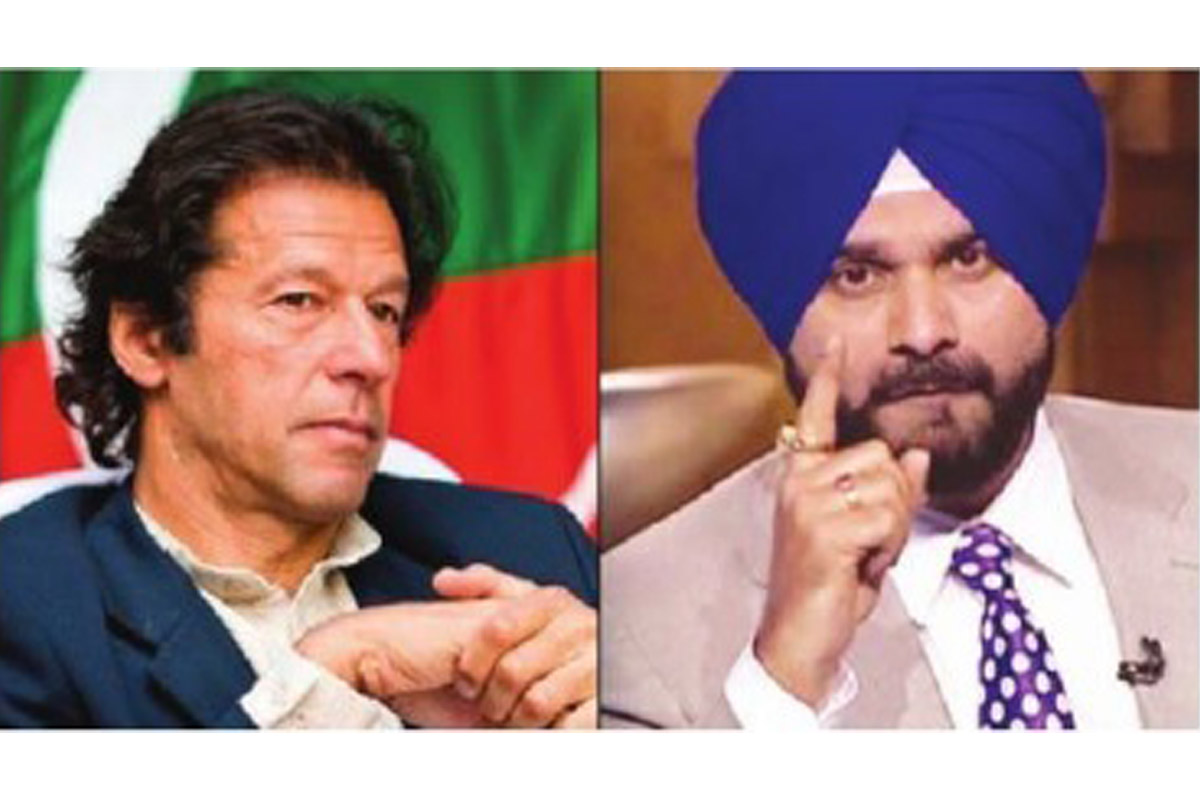Imran Khan shares mental health journey
Imran Khan discusses his ongoing mental health journey, emphasizing the importance of prioritizing wellness and seeking professional support.
A constitutional amendment in 2003 had restricted the size of the council of ministers at the Centre and in the states to not more than 15 per cent of the strength of the Lok Sabha and Vidhan sabha respectively.

(SNS)
Navjot Singh Sidhu was singled out for special treatment by Pakistan Prime Minister and fellow ex-cricketer Imran Khan during the inauguration of the Kartarpur Corridor. Sidhu was the only member of the Indian delegation to be provided with a car on the way back to the India-Pak border after the ceremony. All others, including elderly former prime minister Manmohan Singh, Punjab chief minister Amrinder Singh, union ministers of state Hardeep Puri and Harsimrat Kaur and a host of other luminaries were made to travel by bus.
It was a luxury coach but a bus nevertheless. Sidhu, on the other hand, travelled in solitary splendor in a swanky SUV given to him by the Pakistan government at the behest of Imran Khan. Apparently, Indian officials accompanying the VIP delegation requested Pakistani authorities to extend the same courtesy to others, particularly Manmohan Singh and Amrinder Singh in view of their age and status. But the authorities declined, insisting that their luxury coaches were as comfortable as a car.
In fact, Imran Khan’s special gesture to Sidhu took the Indian delegation by surprise because on the way to Kartarpur from the border, travel arrangements were much more egalitarian. Everyone went in a bus. Even Imran Khan. And while Sidhu made sure that he was the centre of attention, there was plenty of bonhomie all around between Khan and members of the Indian delegation.
Advertisement
Signs of Imran Khan’s special affinity for Sidhu were evident during the ceremony itself. In his address, Imran virtually said that the opening of the corridor connecting Dera Baba Nanak Sahib in Gurdaspur in India to Gurdwara Darbar Sahib in Pakistan was the result of Sidhu’s efforts. He gave the credit entirely to the Indian cricketer-politician.
Pawar brakes
It seems the Congress was all set to give a letter of support to the Shiv Sena to form a government in Maharashtra when NCP chief Sharad Pawar applied the brakes. Pawar wanted certain concessions from the Sena in writing before going ahead. Pawar insisted on three things. One, that Sena agree to give NCP the same 50:50 power sharing arrangement it had demanded from BJP.
In other words, he wanted to share the chief minister’s post on a rotational basis with Sena getting the first bite for two and a half years and then handing the reins to NCP. Two, he wanted the distribution of ministerial portfolios to be sorted out in advance to prevent discord. And three, he said the Sena should sever ties with the BJP before opening talks with NCP and Congress.
The Sena met the third demand by withdrawing its minister from Modi’s cabinet. The other two demands were under discussion at the time of writing this column. But having sought an appointment with the governor on Saturday, hopefully this time around, the three parties will have ironed out their problems by them. Pressure to form a government is intense on all three. They know that if they fail to wrest power, they will become victims of the BJP’s Karnataka-style Operation Kamal.
Powerless brakes
The decision on whether or not the Congress should agree to join a Sena- NCP government was taken out of the party high command’s hand. A senior leader deputed by 10 Janpath to talk to Maharashtra Congress MLAs was told in categorical terms that the high command could no longer dictate terms. According to the buzz in Congress circles, one MLA boldly told the senior leader that neither Sonia nor Rahul campaigned for him.
He said he won on his own steam, not because of the Gandhi family or the Congress brand. Since he did not owe his victory to the high command, he said he was free to chart his own course. According to Congress sources, at least 20 of the party’s 44 MLAs could break away unless they join the Sena- NCP government and are given a share in power. When Sena boss Uddhav Thackeray telephoned Sonia Gandhi to discuss the new arrangement, she is believed to have told him she has left it to Sharad Pawar to take the final call.
Hard bargain
It took the BJP 19 days to sort out the tussle over ministerial portfolios with its Haryana ally, Dushyant Singh’s JJP. Chief minister Manohar Khattar and his deputy Dushyant Singh took the oath of office on November 26, the day before Diwali. But the cabinet expansion has happened only now after nearly three weeks of intense negotiations. There were two sticking points apparently. One was Dushyant Singh’s demand for the finance portfolio. The other was demands from Independent MLAs who had offered support to the BJP before it finalized the deal with JJP.
A constitutional amendment in 2003 had restricted the size of the council of ministers at the Centre and in the states to not more than 15 per cent of the strength of the Lok Sabha and Vidhan sabha respectively. So Haryana, with 90 MLAs cannot have more than 12 ministers. The BJP had a hard time juggling portfolios and names, more so because Dushyant Singh tried to drive a hard bargain. The BJP flatly refused to part with finance but it accommodated Dushyant to the extent that it gave him excise and revenue, both of which generate plenty of resources.
Advertisement